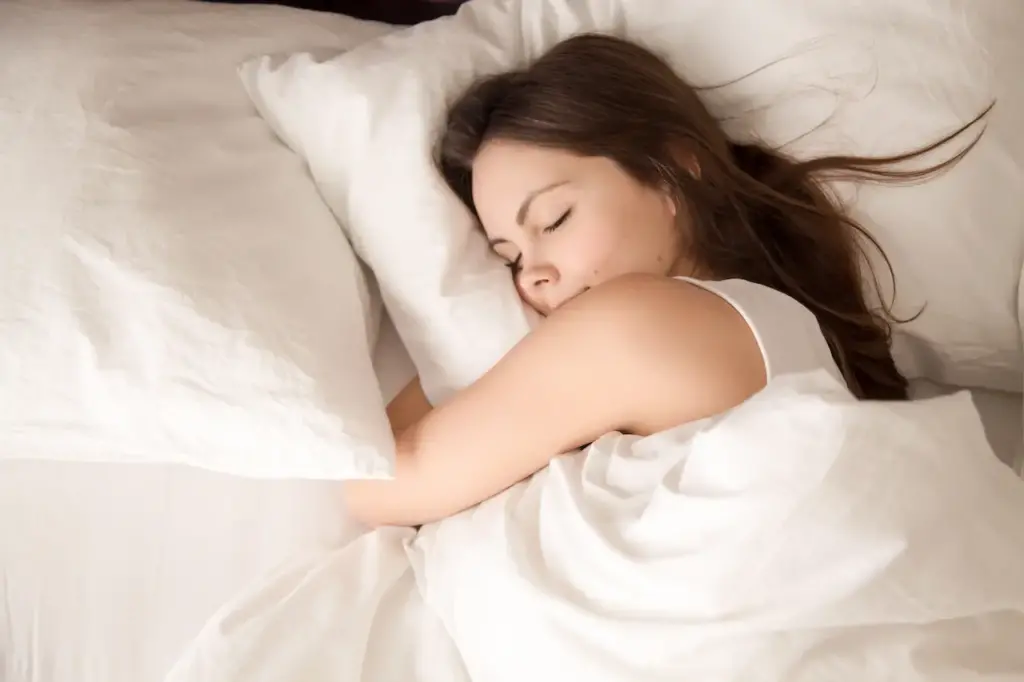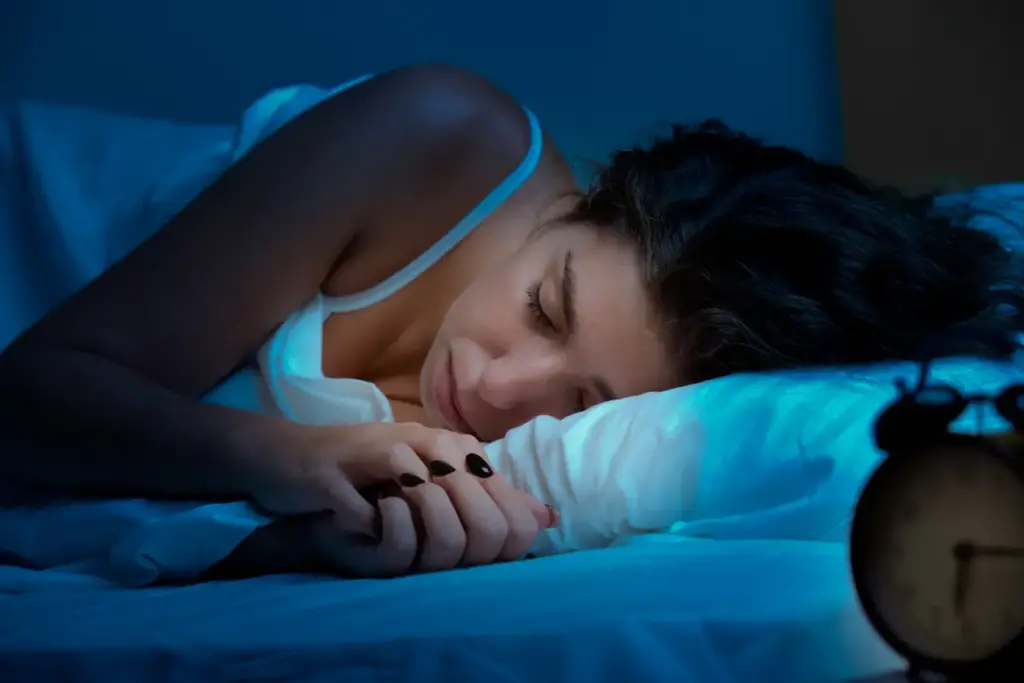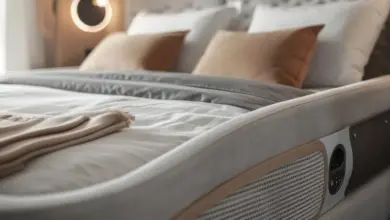Tips for Better Sleep in Noisy Environments
Tips for Better Sleep in Noisy Environments: 7 Tips
It can be difficult to fall asleep when there is noise around. But with these tips, you will find it easier to sleep and stay asleep all night.

Why is it important to get enough sleep?
Even a minor disruption in sleep can leave you feeling groggy the next morning. This could eventually lead to other problems, so it is important to deal with any noise issue immediately.
- Short-term ramifications: A poor night’s sleep can lead to a day filled with drowsiness and irritability. It may also affect mental clarity. According to research, people who have a restless night may also experience increased stress and reduced productivity.
- Long-Term ramifications of sleep disruptions are not addressed, they can lead to much larger problems. According to research, those who are sleep-deprived for a long time tend to suffer from high blood pressure, weight issues, digestive problems and even cancer.
How Noise Affects Sleep
While you are dreaming away, a part of you is alert to any signs that danger may be nearby. The same biological response was used to protect early humans against predators and enemies. Even though we have moved past the hunting and gathering days, this response still keeps us safe at night.
Studies have shown that even low noise levels can cause sleep disturbances, and are linked to strokes and cardiovascular disease in older people.
Tips To Reduce Noise Exposure At Night
Noise will inevitably be heard, but it doesn’t have to affect you. Even if noise is a problem in your city, such as from traffic or construction, moving to another location will not guarantee a peaceful night. Pets or people living in your house, such as noisy roommates or partners who snore, can also cause you to lose sleep.
Follow the tips below if you are regularly woken up by sounds in your surroundings, no matter how familiar they may be.
1. Have a discussion
You can begin your journey by starting a conversation if you are aware that your restlessness stems from a noisy roommate or partner. You may not even be aware that they are affecting your sleep negatively. If the noise can be avoided (such as a noisy TV or late-night socialising), then communicate to them how it affects your sleep. Remember that some noises, like someone using the bathroom in the middle night, are not avoidable.
Conversations are not meant to assign blame, but rather to help you get a better sleep. Consider these tips if you are unable to accommodate the noises disturbing you through conversation.
2) Use noise-cancelling headphones or earplugs
To block out nighttime sounds, silicone earplugs and noise-cancelling headsets are a quick and simple solution. You must use the correct tool to block out the noises. Otherwise, you could still have a noisy evening. The noise reduction rating of earplugs is rated in decibels. The highest rating available is 33 decibels. This reduces the exposure to noise by 13 decibels. To give you a sense of context, the sounds in urban residential areas tend to be between 45 and 55 decibels.
Noise-cancelling headsets aren’t specifically designed to reduce external noise, but they can be used in conjunction with other methods to achieve the same results. If you are looking for new noise-cancelling headsets, check out ‘s recommendations.
3) Listen to pink, white or brown noise
Studies have shown that certain sounds at a more constant volume can help you sleep. The noise may not wake us up in the middle night but rather the sudden changes in volume and tone. The white, pink and brown noises can be used to mask disruptions while providing a constant frequency to help you sleep.
- WhiteWhite Noise, the most familiar option, produces a tone with a range of frequencies, including low, medium, and high. White noise sounds like static when you tune in to an unoccupied radio frequency.
- PinkPink Noise tends to gravitate towards lower-level frequencies, with softer high-frequencies. Pink noise sounds more like a steady rain or slight wind. Listening to pink noise has been shown to have a positive impact on memory.
- Brown: Brown noise is a low-frequency noise that mimics a rushing seaside surf or a river current after a storm.

You can find these options on many phone apps, which include timers to stop them during the night, preventing a further drain of your battery. But you can also buy small machines, that play these sounds on a bedside desk. You may already own a white noise machine if you’re on a budget and don’t want to spend the money. A fan will help you imitate this sound and keep out other noises.
White Noise vs. Pink Noise: Which is better for sleeping?
4) Insulate the space
You can use several items to reduce the noise that comes from outside. You may be woken up by noises outside your house if you live near a busy road, are near an area that is undergoing construction or are near a busy highway.
- CurtainsSome curtains have a sound transmission (STC) class rating. This means that they are designed to block out sounds so you can sleep peacefully. The curtains are dense enough to bounce sound waves back towards the source but flexible enough to be used as a drape. If you want sound-blocking drapes that are truly effective, look for options with an STC of 20 or higher.
- Towel If you have a gap in the bottom of your bedroom where noises from other rooms enter, try rolling a towel up and placing it there to block out the sound.
- RugsYou may have bought your house because of the beautiful wood floors. But now you are paying for them in your sleep, as they creak as you move around. Add a few rugs to the floor. This will reduce the noise of people walking at night. It could also benefit your neighbours if you live in an apartment.
5) Rearrange furniture
Play around with your furniture’s placement to see if it has an impact on your sleep. The way that noise is reflected off surfaces can be changed by changing the location of your bedroom furniture.
Consider moving your bed away from a window if you hear a lot of noises outside. You can also add sound-blocking drapes. You might want to consider moving your bedroom to a different part of your house that is less likely to be disturbed by noise at night.
6) Turn off all electronic devices
The cell phone is a multi-purpose device in today’s world. It can be used in an emergency, as a source of entertainment and to wake us up when our alarm goes off in the morning. While it’s easy to put your phone away at night, the constant pings from notifications will wake you up. When it comes to sleeping,, phones are already difficult. Make it easier for yourself by turning off your notifications and setting your phone on do-not-disturb when you want to go to bed.

7) Mind Over Matter
You can train yourself not to think about the noises that keep you awake at night if all else fails. If you concentrate on the noise keeping you up, it will seem louder because it’s now at the forefront of your mind. Focusing on your breathing instead of using different mindfulness or meditation techniques can improve your sleep.
Mindfulness reduces stress and depression. Research has also shown that sleep is negatively affected by stress. Stress centred around sleep can lead to a vicious cycle of sleepless nights.
Wrapping up
Silence is essential for reducing stress, improving your mental acuity and boosting immunity. These tips are effective in improving sleep, even though silence can be hard to find, especially in busy cities. Try these tips to improve your sleep quality instead of forcing silence at home.



